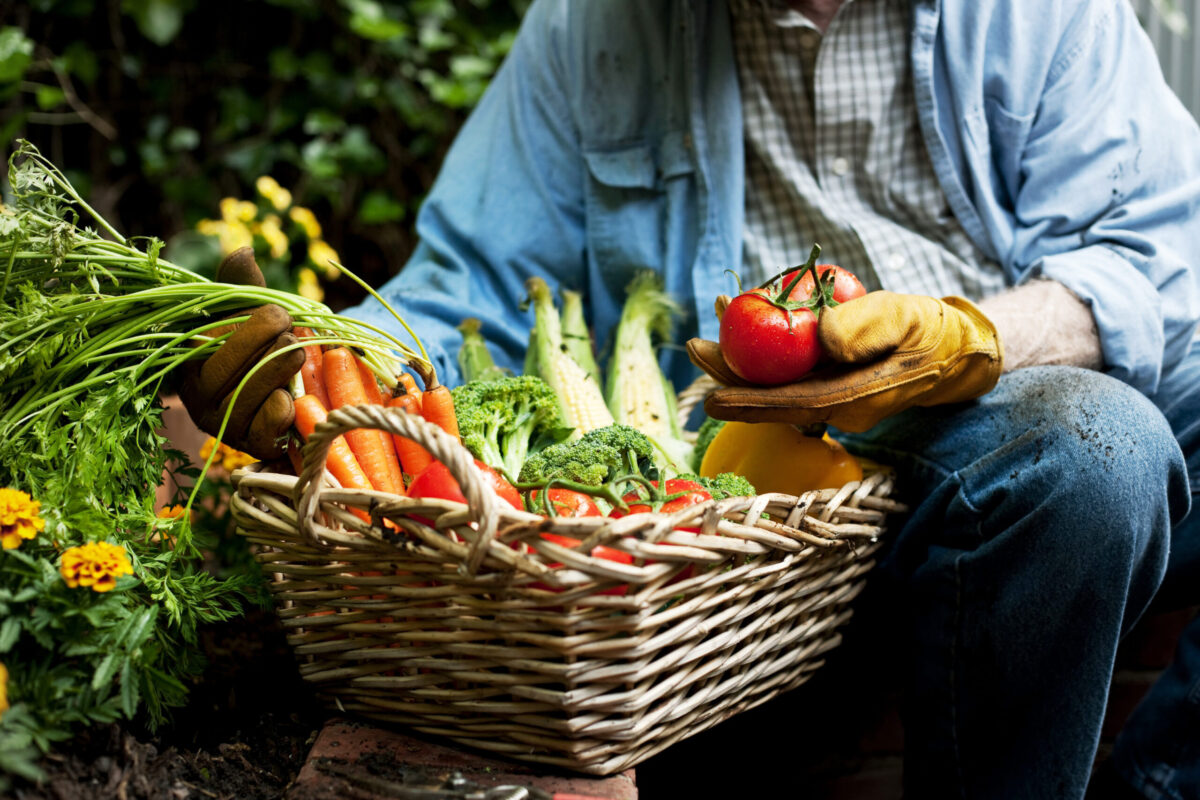July is peak summertime in Tennessee. Temperatures are as high as they’ll get all year, which makes for very hot days — but also very good eats.
By mid-summer, farmers markets and farm stands are overflowing with produce you won’t see other times of year. The timing is also right to plant everything from beans and broccoli to Brussels sprouts to ensure you have a delicious fall too.
Today we’re breaking down what to eat in July in Tennessee, as well as what to plant to keep your garden going through colder months.
What to eat in July in Tennessee
There are more than 30 different kinds of produce at their peak in July in Tennessee.
In-season produce: July in Tennessee |
||
| Apples
Apricots Basil Beans Beets Blackberries Blueberries Boysenberries Broccoli Cabbage Cantaloupes Celery Carrots |
Cherries
Corn (sweet) Cucumbers Dill Eggplant Gooseberries Grapes Greens Herbs Honeydew Hot peppers Lima beans Nectarines |
Onions
Peaches Peas (crowder, hull, sugar snap) Peppers Plums Pole beans Potatoes Raspberries Summer squash Tomatoes Watermelon Zucchini |
For ideas on how to prepare summer produce, WellTuned checked in with some experts.
Charlotte Tolley, executive director of Nourish Knoxville, gave us tips for making the most of any farmers market trip, as well as ideas for preparing:
- Blackberries
- Cantaloupe
- Cherry Tomatoes
- Grapes
- Hot Peppers
- Plums
- Pole Beans
- Raspberries
- Sugar Snap Peas
- Sweet Corn
- Tomatoes
- Watermelons
- Zucchini
Michael Vetro, executive chef of culinary operations at St. Jude Children’s Research Hospital in Memphis, offered inspiration for:
- Beets and turnips
- Berries
- Cabbage and cucumbers
- Cantaloupe
- Cauliflower
- Greens
- Okra
- Peaches
- Peas
- Scotch bonnet peppers
- Sweet potatoes
- Squash and zucchini
- Strawberries
- Tomatoes
What to plant in July in Tennessee
When it comes to gardening, the U.S. is broken into hardiness zones based on average low temperatures. Tennessee’s zones range from 6a-7b with most of the major cities falling into zone 7.
Most of Tennessee — excluding the mountains — is considered a humid subtropical climate with hot, moist summers and cool, mild winters. Some produce won’t grow well in those conditions (citrus, avocado, romaine lettuce), but there’s plenty of produce that will.

July planting calendar: Tennessee |
|
| Start indoors | Direct sow |
| Beans
Brussels sprouts Cabbage Corn Cucumber Onions Peppers Squash Tomato |
Beets
Broccoli Carrots Kale Lettuce Peas Spinach
|
Beans
You can plant, or direct sow, beans through August in Tennessee. Direct sow means planting seeds directly in your garden rather than using small plants or starting seeds indoors. Try snap, wax or French beans, and harvest them often once beans appear so your plant will keep producing.
Broccoli
Broccoli is hardy, which makes it a good option for home gardeners. For an earlier first harvest, start seeds indoors. Otherwise, you should see a crop by late October, and multiple harvests thereafter for 2-3 months.
Herbs
In the high heat of summer, parsley and dill may bolt, or prematurely grow flowers and “go to seed,” which prevents the herbs from bearing a harvest. In late July or August, however, you may have better luck sowing these herbs as temperatures start to change.
Tennessee herb guide with Honey Rock Herb Farm near Knoxville
Leafy greens
Arugula, kale, spinach and lettuces can grow for a second or third round starting in July. Most will be salad-ready by late August or early September.
Peas
While people typically think of peas as a spring crop, Tennessee’s climate means they can also be planted in late July or August for an October/November harvest. Be sure to check your zone to determine whether they should be started indoors or can be direct-sown.
Squash
Squash is an easy-to-grow crop that you can plant from July through mid-August in Tennessee. Try cupcake or patty pan squash, use beds or containers and expect a harvest in less than 2 months.
More from WellTuned
Get more information about specific health terms, topics and conditions to better manage your health on bcbst.com. BlueCross BlueShield of Tennessee members can access wellness-related discounts on fitness products, gym memberships, healthy eating and more through Blue365®. BCBST members can also find tools and resources to help improve health and well-being by logging into BlueAccess and going to the Managing Your Health tab.


